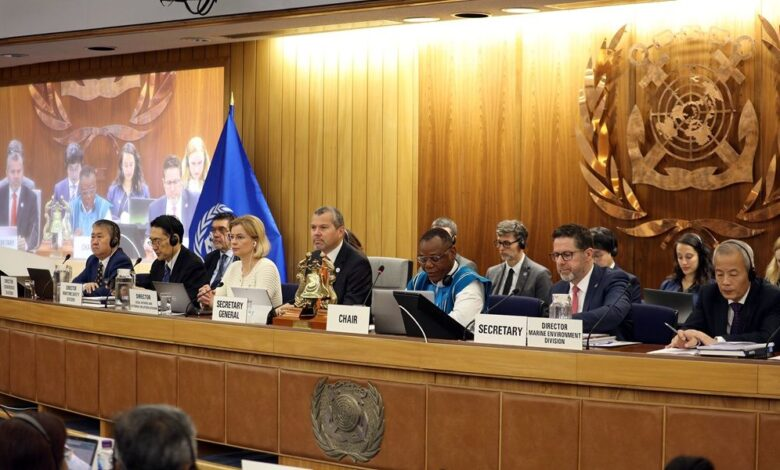The International Maritime Organization (IMO) recently decided to postpone by 12 months the “Net Zero Emissions Framework” negotiations, originally scheduled for October 14-17. This move means that the decarbonization regulatory path for the global shipping industry will be further uncertain, and the industry will have to wait at least another year.

At the extraordinary session of the Marine Environment Protection Committee (MEPC) held in London, member states failed to reach consensus on the draft amendments to Annex VI of the International Convention for the Prevention of Pollution from Ships (MARPOL) and did not initiate a voting procedure. Consequently, it was decided to adjourn the session until 2026.
The core of this draft amendment is the IMO Net Zero Framework, comprising two key elements: global fuel standards and a global greenhouse gas emissions pricing mechanism. Together, these will form the central pillars enabling the international shipping industry to achieve its 2050 net-zero emissions target.
The framework received approval in principle at the 83rd session of the MEPC in April 2025 and was incorporated into Chapter V of the draft amendments to MARPOL Annex VI. This postponement means the earliest implementation date for the framework will not be before the end of 2026, introducing uncertainty into the implementation of the greenhouse gas reduction strategy agreed by the IMO in 2023.
The Intersessional Working Group on the Reduction on Greenhouse Gas Emissions from Ships, scheduled to meet 20 to 24 October 2025, will go ahead to continue work on the guidelines for implementing the Net Zero Framework. The IMO stated in its declaration that during the recess, member states will continue to work toward reaching consensus on the final content of the net-zero framework.
All parties in the shipping industry expressed widespread disappointment and concern over the delay in negotiations, warning that the year-long recess could slow investment momentum in the sector and undermine progress toward decarbonization goals.
The Global Maritime Forum called the adjournment a major setback. “Today’s adjournment is disappointing but not the end of the journey,” said Jesse Fahnestock, the Forum’s director of decarbonisation.
“Delaying for a full year makes delivery of the sector’s decarbonisation targets even more challenging,” he added, urging member states that supported the framework in April to “reconfirm their commitment to multilateralism and continue the urgent work of developing guidelines and adopting a regulatory framework that can deliver on the IMO’s unanimously agreed GHG strategy.”
The International Chamber of Shipping (ICS) also expressed disappointment that the meeting failed to make progress.
“We are disappointed that member states have not been able to agree a way forward,” said Thomas Kazakos, ICS secretary general, adding: “Industry needs clarity to make the investments needed to decarbonise in line with the IMO’s goals.”
Anne Steffensen, CEO of Danish Shipping, said the outcome was “not what we came for. We came here to finally conclude a crucial climate agreement for international shipping. We from the Danish side have worked tirelessly towards this for a long time, so it’s a big disappointment”.


